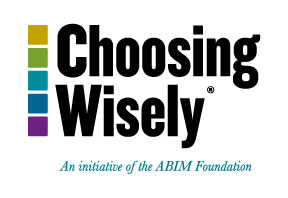Choosing Wisely Involving Patients in the Campaign
 You might not have heard of the Choosing Wisely campaign yet, but there’s been more talk about it in the blogosphere and in the news since the movement launched last year. Especially since one of the groups behind the campaign, the American Board of Internal Medicine Foundation, recently released a list of 45 medical tests or procedures that they say are overused and sometimes unhelpful.
You might not have heard of the Choosing Wisely campaign yet, but there’s been more talk about it in the blogosphere and in the news since the movement launched last year. Especially since one of the groups behind the campaign, the American Board of Internal Medicine Foundation, recently released a list of 45 medical tests or procedures that they say are overused and sometimes unhelpful.
The campaign aims to reduce health spending and patient harm by encouraging both doctors and patients to carefully think about what makes a test or procedure necessary.
The ABIM Foundation and Consumer Reports put together an impressive list of partner medical organizations in addition to collaborators participating on behalf of patients. Alliance Health Networks officially joined that group today. The organization operates more than 50 condition-specific social networks made up of 1.5 million patients.
Alliance Health is going to start leveraging that reach by launching topic pages that open up the health care spending conversation within online communities. The pages will feature articles, videos and discussion boards.
Choosing Wisely argues against physicians giving patients routine tests like X-rays, stress tests and CT scans in certain situations, even though many patients are comfortable with the exams; patients feel they’re taking preventative measures just in case something might be wrong. But the problem, professor at the Dartmouth Institute for Health Policy and Clinical Practice H. Gilbert Welch explained in a recent op-ed, is that these test can lead to more and unnecessary tests and even treatments.
“‘Routine’ chest X-rays, for example, have a way of unearthing multiple abnormalities. This raises questions in physicians’ minds ― triggering CT scans, needle biopsies, bronchoscopies and even surgery in an effort to answer them,” Welch wrote.
Physicians recognize the problem, but there are a few reasons why cutting back on testing isn’t so easy. One reason is because less testing equals less pay since most physicians are paid on a fee for service basis. An unfortunately reality, but Choosing Wisely is urging doctors to move away from these practices, reminding them to “do no harm.”
But another reason physicians find it hard to abandon unnecessary testing is because their patients have come to expect it, and physicians have a hard time saying “no,” Dr. Davis Liu explained in a blog post.
In general, it takes a doctor more time and energy to educate a patient on why an antibiotic or MRI isn’t necessary, how an individual’s personal experience is different than those of their friends and family who all got antibiotics and MRIs in the past, and to do so in a caring and compassionate way.
If we expect doctors or patients to bend the health care cost curve this way with more education, better communications, and encouraging patients to talk to their doctors about the appropriateness of care, we will fail.
That’s why Choosing Wisely’s patient education component is so important. Patients are already taking it upon themselves to be more proactive and educated about their health, and they aren’t just looking to their doctors to help them do it. On Alliance Health Networks alone there are more than one million patients seeking online health information. Choosing Wisely is off to a great start involving Alliance Health, and it’s likely to see that online word of mouth is an effective way to spread its message.

